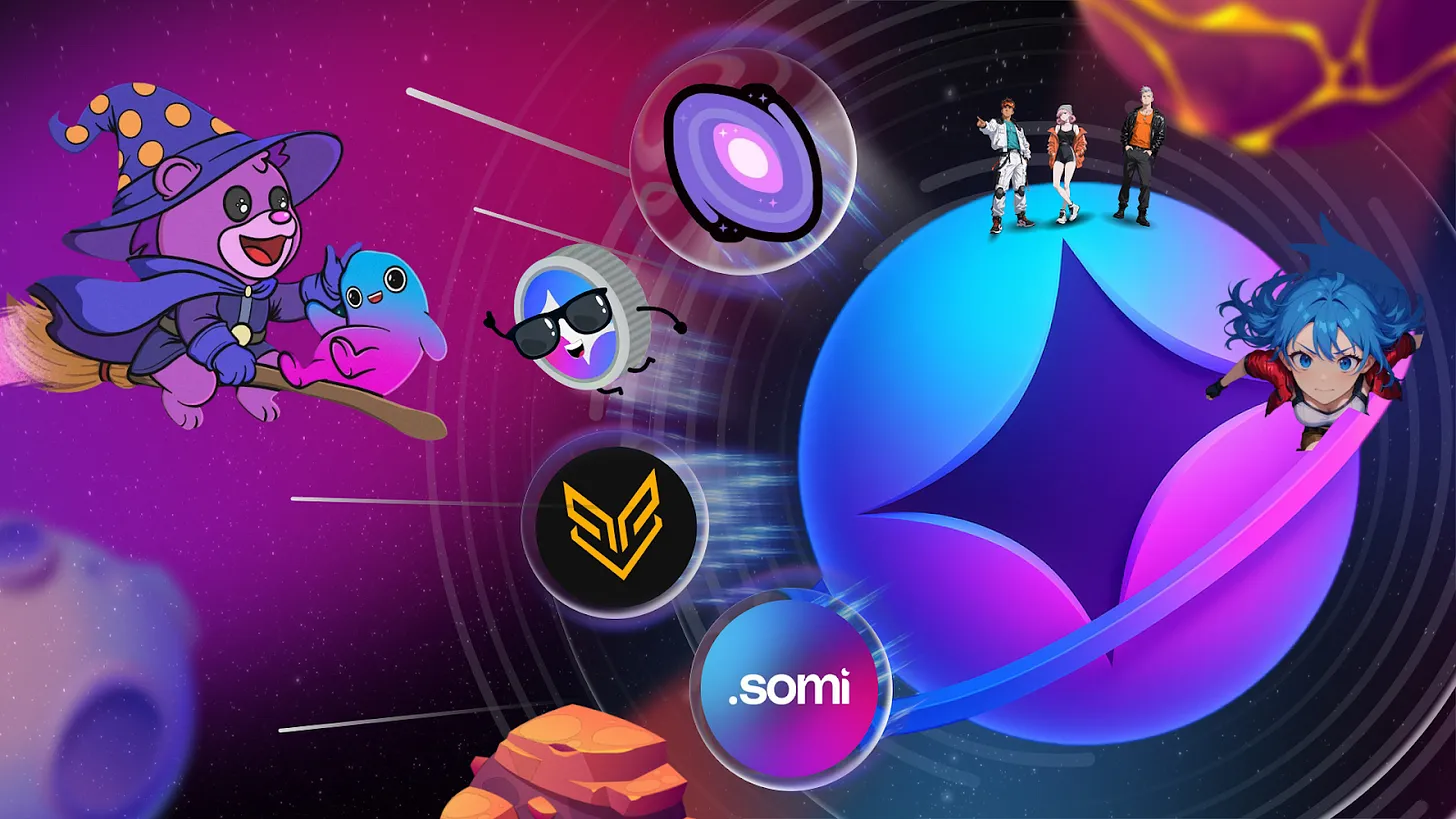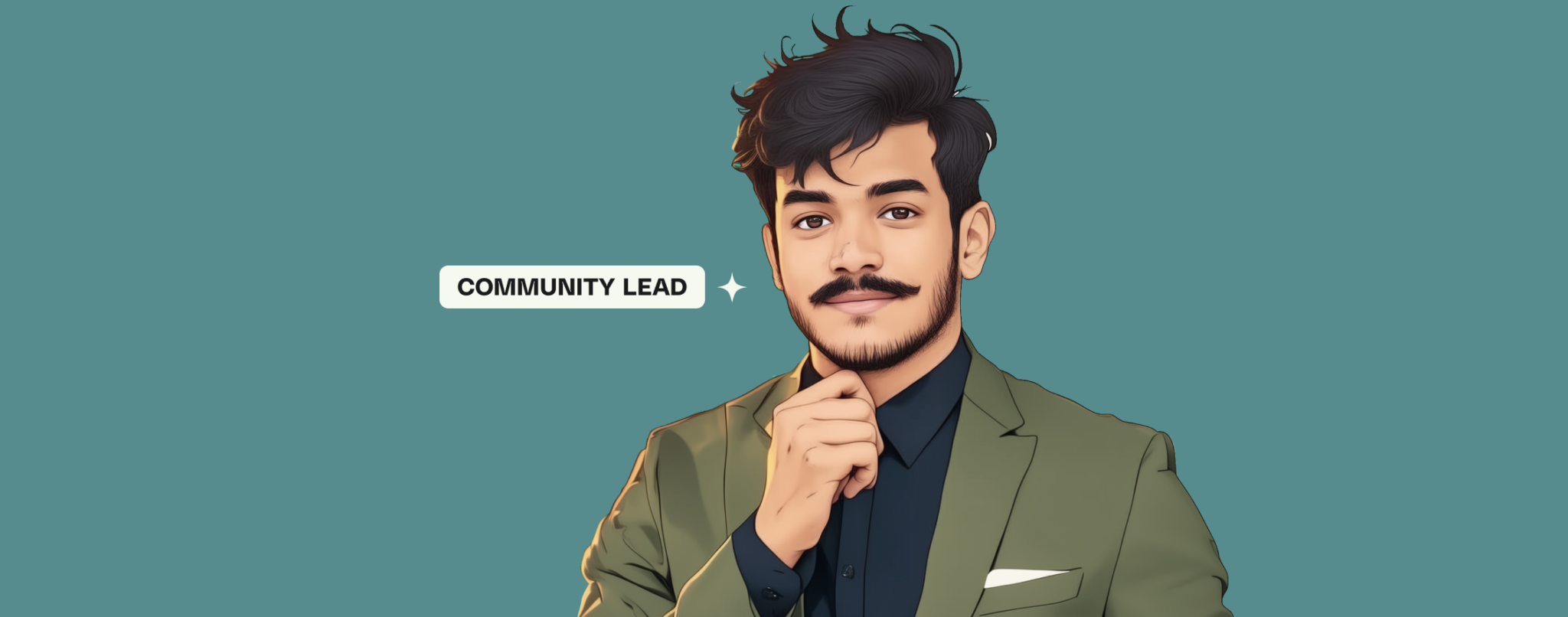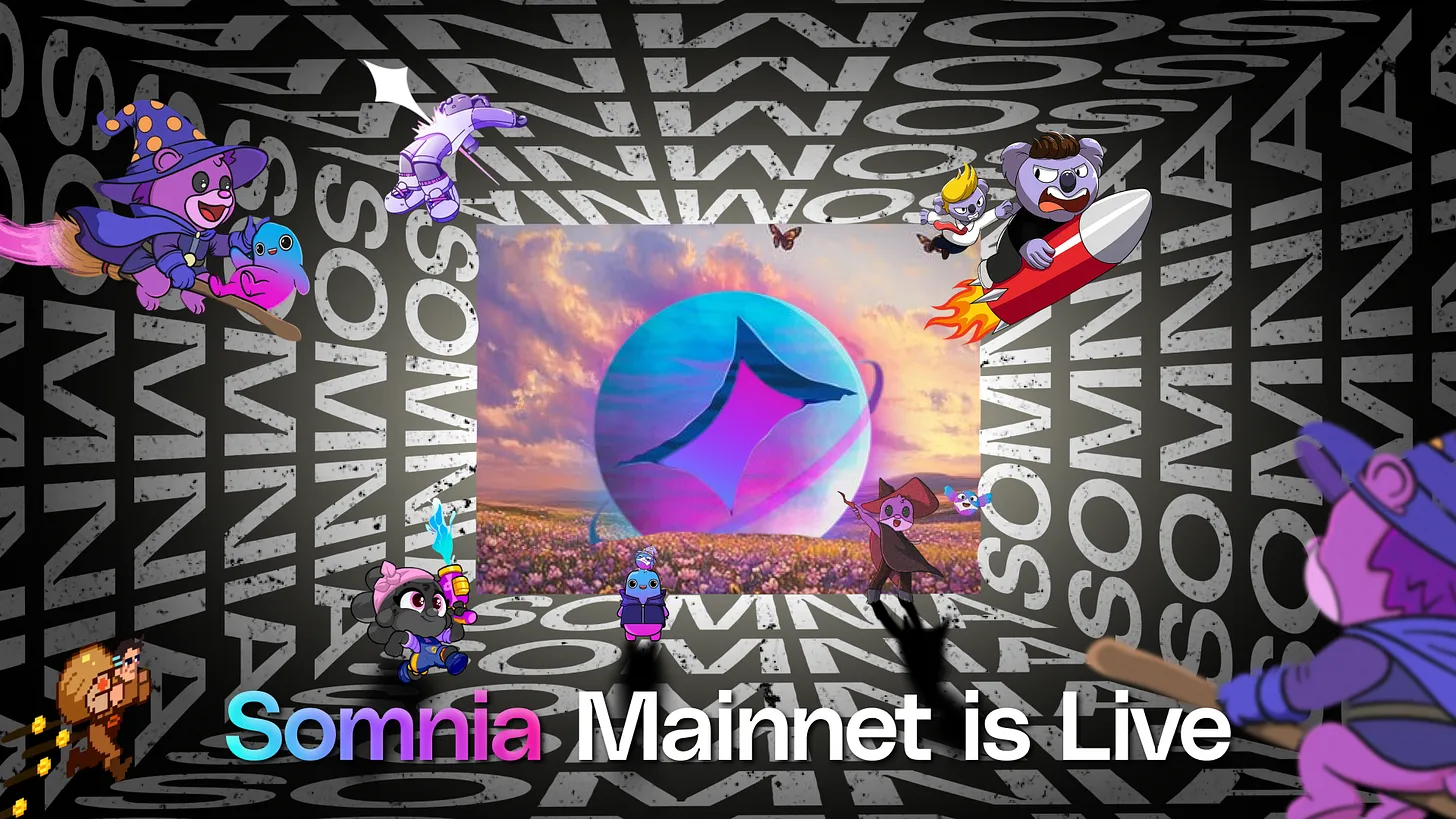
From E-Sports to Web3 Gaming: Somnia’s Community Lead Mush

Meet Mush, Somnia’s Community Lead. Mush has always had a passion for video games, and in his early days, he was even part of a local esports team. Over time, that passion evolved as he discovered interests in technology, blockchain and community building.In this interview he shares some details about his background with the community, and talks a bit about how things work behind the scenes, and what he does in his free time.
Tell us a bit about yourself and your background.
My name is Mush Rahman and I am currently serving as the Community Lead at Somnia, where I’m helping them to strive towards their vision of building a fully onchain world. I first came across the concept of Blockchain and Web3 in late 2018. As I had a background in tech, the concept got me intrigued. Initially it was all about connecting with new people, occasional trading and of course continuous learning as the space was evolving rapidly. In a few months, I found myself in various community groups, full of passionate and enthusiasts’ people and I started to spend a great deal of time on Twitter and continued my learning as well as networking.
In 2020, a new term called “Web3 Gaming” started becoming immensely popular in the space and many teams from the Web 2 gaming as well as new teams were trying to pivot and make an entrance to the new gaming meta. As a hardcore gamer, I found the concept of Web3 gaming immensely effective giving players true asset ownership and beyond. Later that year, I came across a team of proven veterans in the general gaming industry and trying to make their mark in the Web3 gaming space. My first official journey started there, I joined as the Head of Community Management at Chainge Games, a Dublin based Game Studio. I was responsible for creating and nurturing a vibrant, engaged, and inclusive player community. My role involved strategic planning, cross-team collaboration, and hands-on interaction with our player base to ensure they felt valued and connected to the game as well as the team itself. These efforts contributed to a thriving community, a healthy number of player base, strengthened brand loyalty, and ensured a positive reputation for the company within the Web3 gaming space. Considering how early in the gaming space it was, our first game, Defina, still ended up with around 20k DAU at the peak and was a huge success at that time. During my time at Chainge Games, I discovered my true passion for community building. It wasn’t just about managing a group of people; it was about creating a sense of belonging, nurturing connections, and driving engagement that felt authentic and meaningful. I realized that fostering vibrant, thriving communities where individuals feel heard, valued, and empowered was not only something I excelled at but something I genuinely loved doing.
After nearly 2 years at Chainge Games, I joined another gaming startup called Polker. I took on a pivotal role in shaping and scaling the community’s engagement, trust, and loyalty in alignment with the company’s vision. With a team effort, we were able to successfully expand Polker’s community by launching unique and innovative targeted campaigns that resonated with both gaming enthusiasts and crypto-native users. While I was working at Polker, I got acquainted with a few highly passionate and likeminded individuals who were envisioning that Fully Onchain Games can arguably be one of the biggest applications of blockchain technology and the first guild dedicated to play FOCG, WASD was born. I am currently one of the core team members at WASD and where you will find some of the most skilled and influential people in the space.
Now I am at Somnia, trying to build and implement spearheaded innovative community-building initiatives tailored to the unique ethos of Somnia. The goal is to establish Somnia’s community as a central hub for discussion, collaboration, and excitement, creating an active, self-sustaining network of advocates. Crypto is a fast-moving space and most people have a low attention span. I am working towards introducing gamified experiences for community members, creating an environment where users feel valued and inspired to contribute actively and with everyone’s collective effort, I am highly motivated to play a crucial role in making Somnia’s vision come true.
What are your favorite things about the crypto space?
What I love most about the crypto space is its constant drive for innovation and its ability to challenge the existing challenges.. It feels like being part of a revolution where technology is reshaping the way we think about ownership, value, and trust. The decentralized nature of blockchain creates a sense of empowerment, giving individuals control over their assets and decisions in ways traditional systems never could.
I’m also inspired by the global and borderless nature of crypto. It brings together people from all walks of life, regardless of location, culture, or background, fostering collaboration and connection on a scale I’ve never seen before. There’s something incredibly exciting about being part of a movement that’s not tied down by traditional boundaries.
But perhaps what I appreciate most is the vibrant and passionate communities that make up this space. Crypto communities are incredibly dynamic, filled with individuals who are driven, creative, and unafraid to think differently. It’s a space where collaboration and innovation thrive, and that sense of belonging and shared purpose is something I truly cherish.
What are some of your least favorite things about the space?
While I’m deeply passionate about the crypto space, it’s not without its challenges. One of my least favorite aspects is the prevalence of misinformation and hype-driven narratives. The rapid pace of innovation often leads to a lack of clear understanding, and this can result in unrealistic expectations or the spread of misleading information. It can be frustrating to see incredible technology overshadowed by scams, pump-and-dump schemes, or projects with little to no substance.
Another challenge is the barrier to entry for newcomers. While decentralization is empowering, the complexity of wallets, gas fees, and managing private keys can be intimidating for people new to the space. I believe the crypto world needs to focus more on user-friendly solutions and education to make it truly accessible to everyone.
Lastly, in the gaming context, the adoption of blockchain and fully on-chain games is sometimes met with skepticism from traditional gamers. Many view blockchain as unnecessary or even exploitative due to poorly executed NFT and tokenization projects. This can overshadow the genuine potential of blockchain gaming, and it highlights the need for better communication and innovation that focuses on enhancing player experiences rather than just monetization.
Despite these challenges, I believe these are growing pains for an evolving industry. By addressing these issues head-on, the crypto space can continue to mature and unlock its full potential.
Do you have a favorite video game? If not, music or movies will work.
My favorite video games are the Assassin’s Creed series, Age of Empires series, and Valorant. The Assassin’s Creed games are incredible for their historical settings and immersive storytelling. I love how they take you to different eras, letting you experience history with a mix of action and adventure. The Age of Empires series, on the other hand, is all about strategy and building civilizations. It’s so satisfying to plan battles, manage resources, and lead your empire to victory.
Then there’s Valorant, which is my go-to for fast-paced, competitive fun. The mix of tactical gameplay and unique agent abilities makes every match exciting. These games reflect everything I enjoy in gaming—exploration, strategy, and adrenaline-pumping action. They’re all unique, but each offers an experience I truly love.
What excites you most about what you’re building at Somnia?
What excites me most about what we’re building at Somnia is the potential to redefine how the internet works by merging the best of web2 scalability with the openness and decentralization of web3. The idea of enabling real-time applications that can handle millions of concurrent users and thousands of transactions per second is groundbreaking and opens doors to possibilities we haven’t even imagined yet.
I’m particularly passionate about our focus on fully on-chain gaming. Somnia is making it practical and scalable for developers to create fully onchain games, which represent the future of gaming. By providing the tools and infrastructure to handle real-time gameplay, composability, and true ownership of assets, we’re breaking down barriers that have traditionally limited onchain games. This not only empowers developers to innovate but also enhances player experiences by enabling transparency, interoperability, and freedom of choice.
The idea of building systems that are censorship-resistant, equitable, and accessible to anyone excites me deeply. Being part of an initiative that not only advances technology but also creates a more open, interconnected, and fair virtual society is incredibly fulfilling. At Somnia, we’re not just building technology; we’re building a better future for creators, gamers, and users alike.
What advice would you give to people getting started in the industry?
If you’re just starting in the crypto and Web3 industry, the most important thing is to approach it with curiosity and a willingness to learn. This space evolves quickly, and staying adaptable is key. Begin by understanding the fundamentals—what blockchain is, how decentralization works, and why these concepts matter. Once you have a foundation, dive into the areas that excite you most, whether it’s DeFi, NFTs, gaming, or DAOs.
Remember to be both open-minded and cautious. The crypto space is filled with innovation, but it’s also full of noise and scams. Take your time to research projects thoroughly and don’t get swept up in the hype. Most importantly, find your niche and build your expertise around it. Whether you’re a developer, designer, or marketer, there’s a place for everyone in this decentralized world, and your unique skills can help shape its future.
What has the biggest challenge been so far?
The biggest challenge so far has been educating the community about Somnia’s revolutionary technological innovations. While we’re building something truly groundbreaking, many community members tend to focus more on the end results and being part of a vibrant, inclusive ecosystem, rather than understanding the underlying technology. Bridging this gap between innovation and engagement has been a key focus.
Another significant challenge has been retaining users’ attention in the ever-evolving crypto space. With trends shifting rapidly, many individuals find it hard to keep up and often jump from one community to another. Beyond that, building a genuine sense of belonging, a family of committed community members rather than attracting people who are solely reward-driven, has been an ongoing effort. Striking a balance between offering value and fostering meaningful connections has been crucial to ensuring long-term community growth and loyalty.
What do you do for fun outside of work?
Outside of work, I enjoy a mix of activities that keep me engaged and balanced. Playing football is a great way for me to stay active and connect with friends, while reading books allows me to unwind and explore new ideas. I also like to play video games once in a while. Additionally, I love traveling, it gives me the opportunity to experience new cultures, meet interesting people, and recharge my creativity. These hobbies help me maintain a well-rounded and fulfilling life beyond work.
Stay updated with Somnia
Twitter – Discord – Telegram – Reddit – Lightpaper – OnePager



